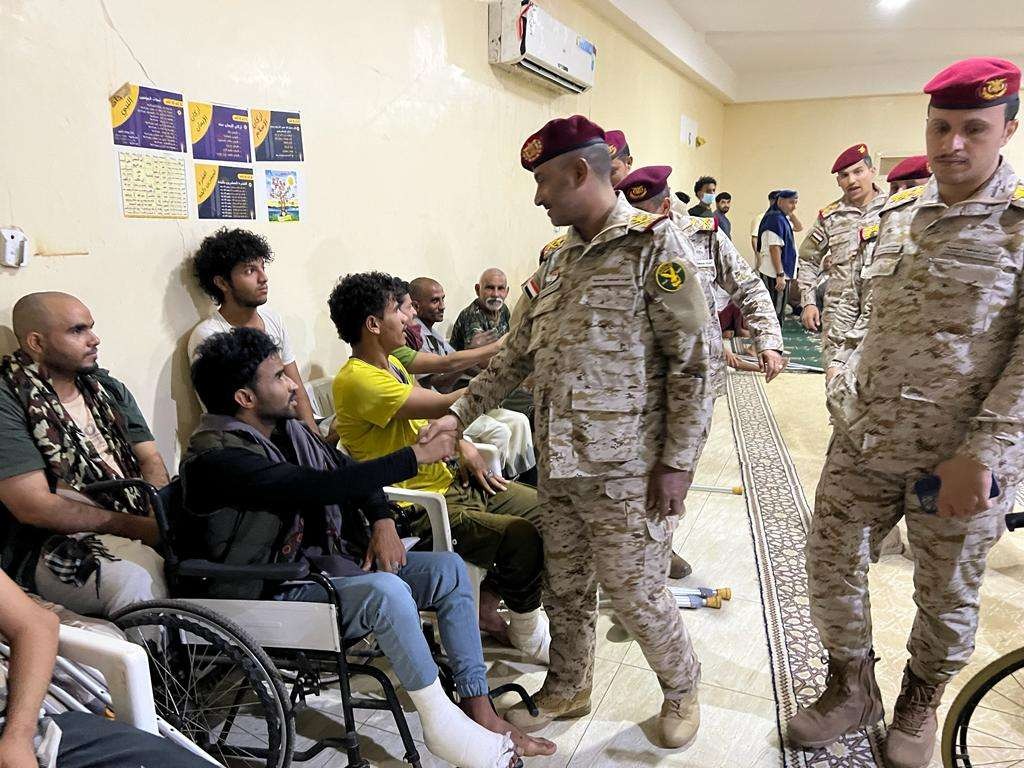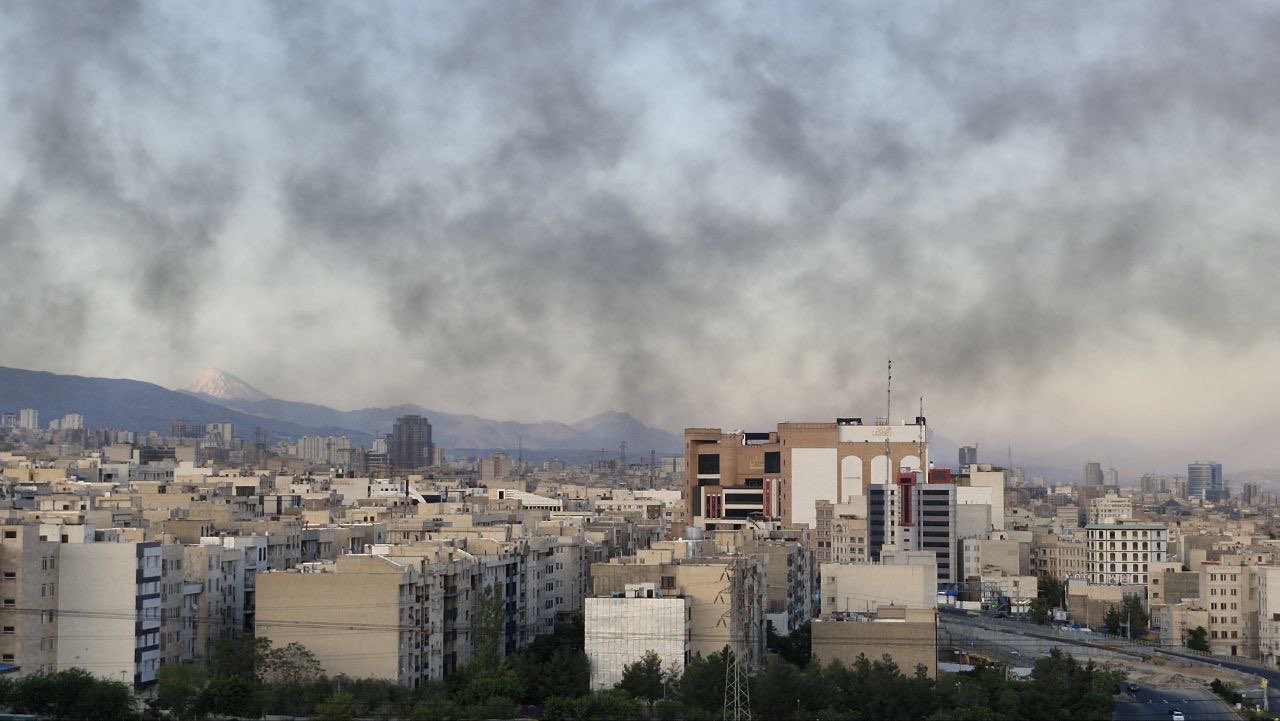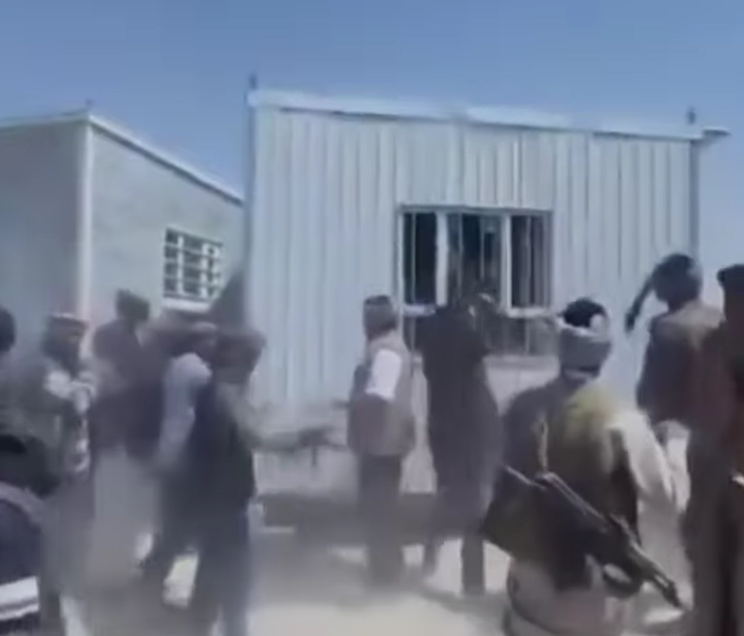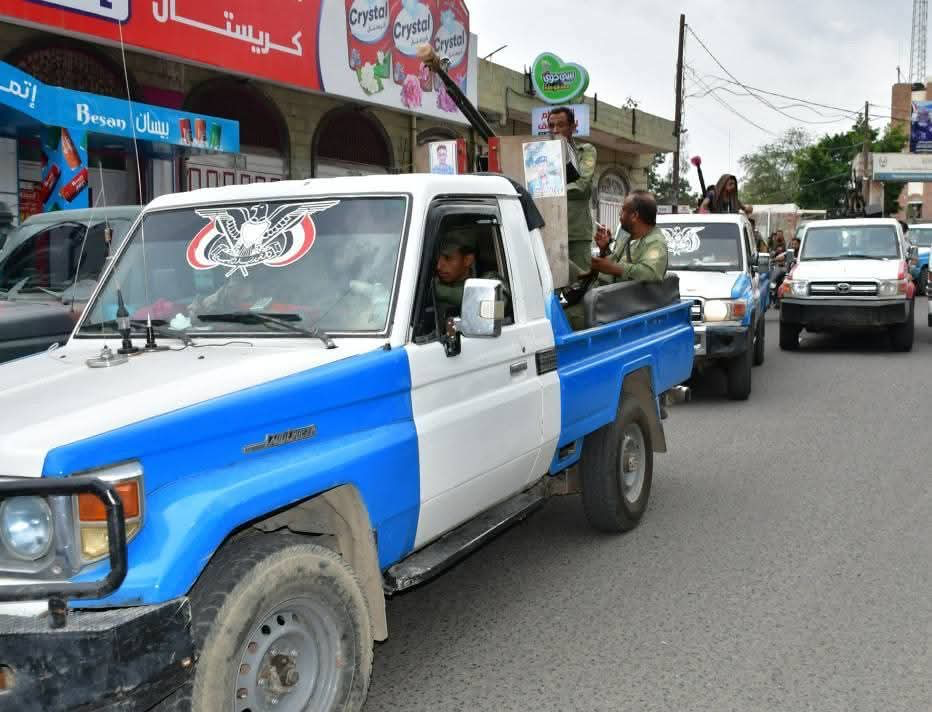
Barran Press
The Chief of Staff of the Yemeni Armed Forces, General Saghir bin Aziz, has appointed a military commission to assess the situation of wounded soldiers and security personnel.
Sources within the military told Barran Press that the commission, headed by Brigadier General Ali Al-Jaifi, Deputy Director of the Moral Guidance Department, is tasked with examining the conditions of wounded soldiers, security forces, and resistance fighters, including those injured on the northern border fronts currently stationed in Marib.
The sources revealed that the Chief of Staff instructed the commission to submit "urgent proposals" to address the existing problems faced by the wounded, including ensuring adequate treatment and care.
The move comes after dozens of wounded soldiers began an open-ended sit-in in front of the headquarters of the Third Military Region in Marib, demanding the completion of their treatment, regular payment of their salaries, and equal treatment compared to their counterparts in other military regions.
On August 1, 2024, Yemeni Prime Minister Ahmed Awad bin Mubarak, recognized by the international community, affirmed the government's "commitment to treating the wounded and caring for the families of martyrs."
During a meeting with representatives of wounded soldiers and families of martyrs in Taiz, the temporary capital of Yemen, bin Mubarak emphasized that "the state and the government will not deny their wounded nor forget the families of their martyrs who sacrificed their lives defending the homeland against the Houthi coup, sectarian, and racist project."
Meanwhile, Defense Minister Major General Mohsen Al-Da'ari, also recognized by the Yemeni government, highlighted the "priority of the martyrs and wounded file," emphasizing the Ministry of Defense's commitment to providing treatment and care for the wounded and supporting the families of martyrs, calling it a "national duty and a tribute to their heroism and sacrifices in defending the homeland and its dignity."
Wounded soldiers, particularly in the governorates of Taiz and Marib, have been complaining about government neglect, delays in their treatment, especially for cases requiring overseas treatment, and the delayed payment of their salaries and financial benefits.





